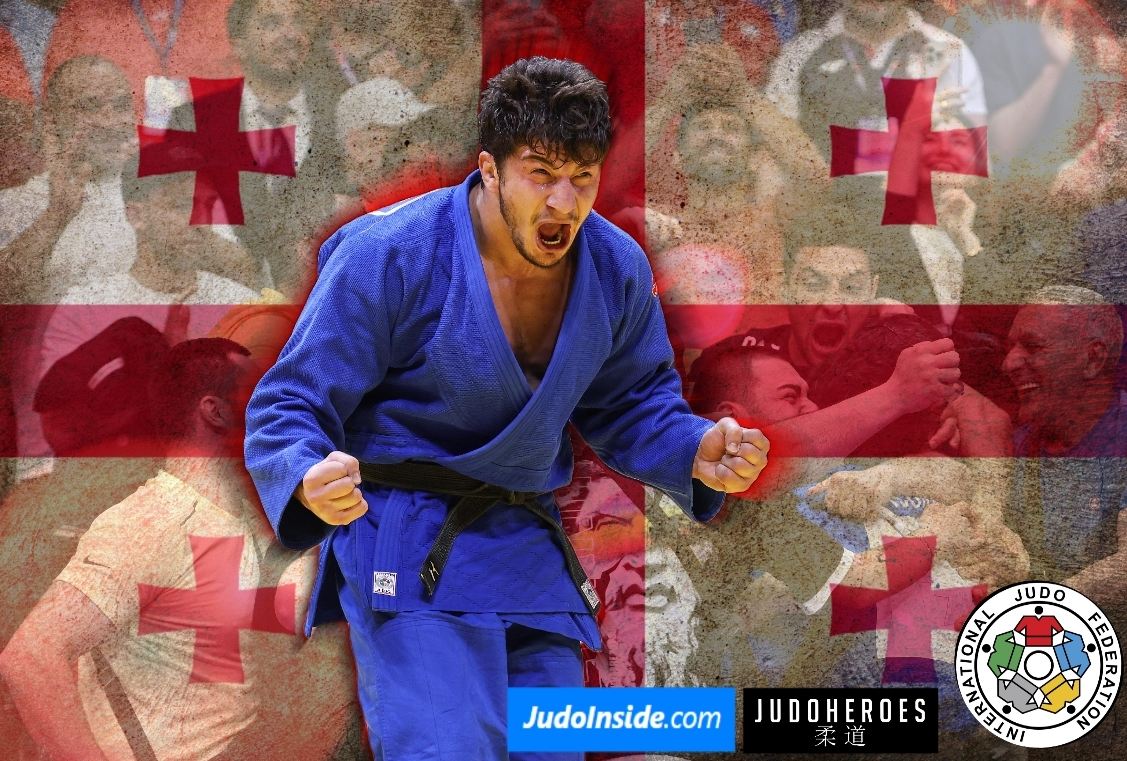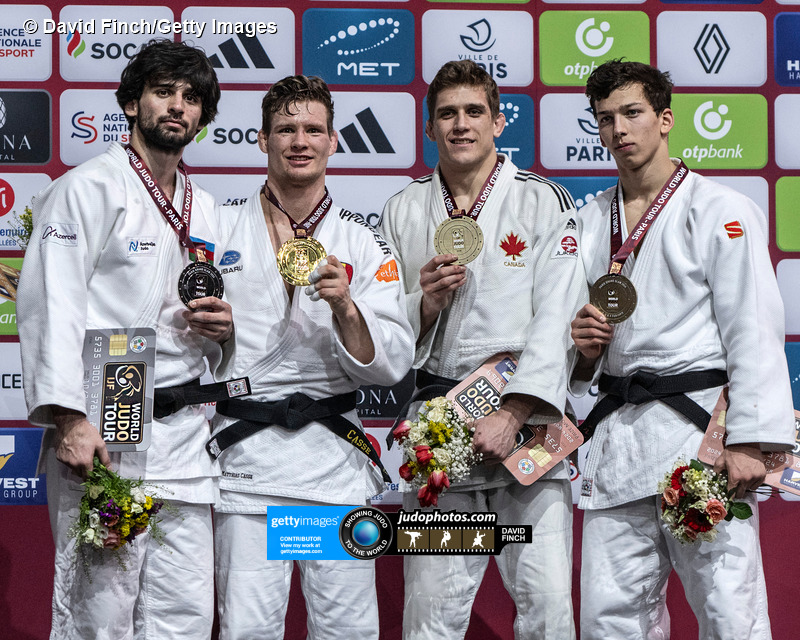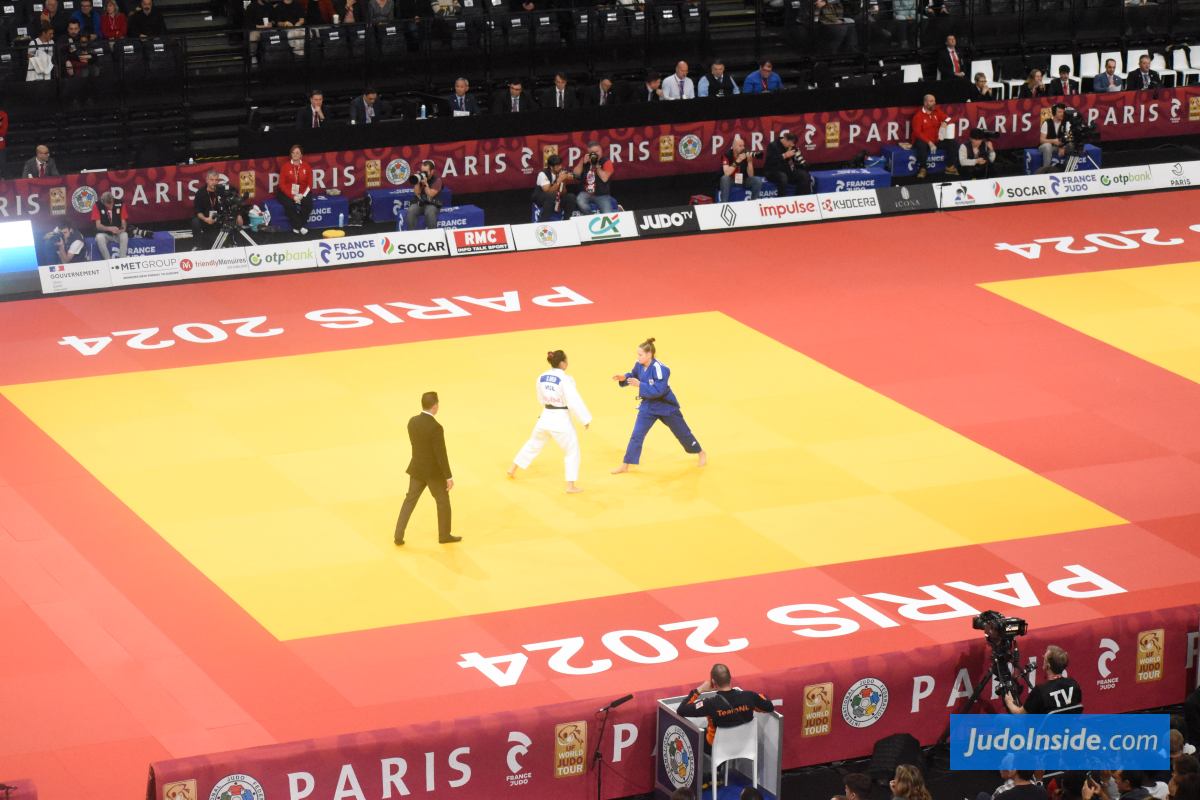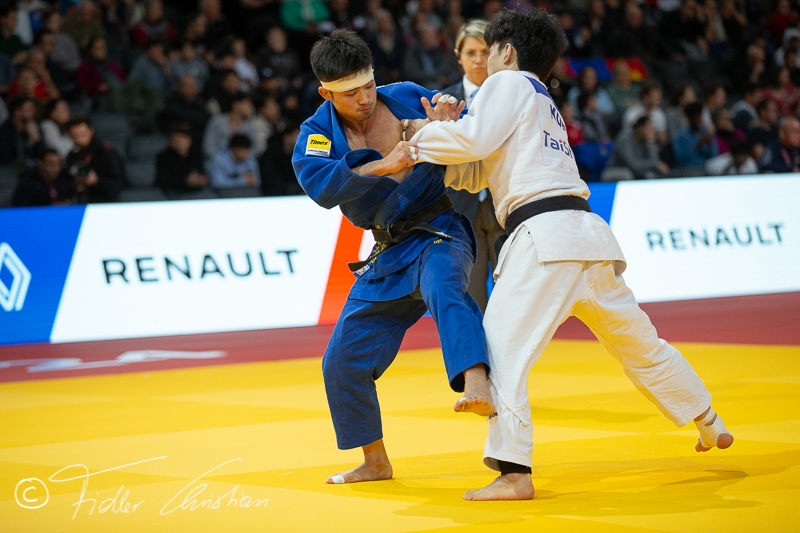Sanshiro Murao again sensational in Tokyo Grand Slam
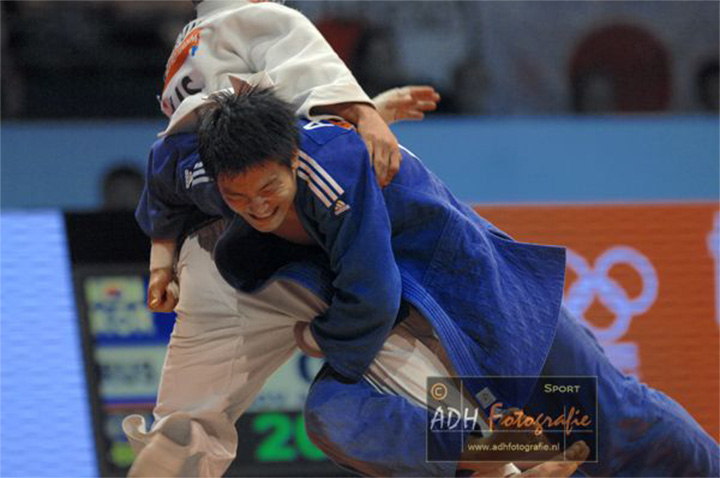
 8 Dec 2024 14:20
8 Dec 2024 14:20
 IJF Media team by Nicolas Messner and JudoInside
IJF Media team by Nicolas Messner and JudoInside

The final in Tokyo U90kg promised to be thrilling. It must be said that Sanshiro Murao once again demonstrated his immense technique: uchi-mata in 14 seconds in the first round, o-soto-gari in 1 minute 19 in the second. In the semi-final, things were more complicated, since it took Murao 9 minutes 48 to overcome his compatriot Goki Tajima. On his side, Maisuradze won a tactical victory in the first round, before pinning his opponent in the second. In the semi-final, the Georgian judoka won in golden score by a waza-ari.
Seeded number 1, world number 2, Olympic silver medallist this summer in Paris and a world medallist, Sanshiro Murao's CV speaks for itself. He was the big favourite in the category. He did not let the predictions down and qualified for the final. He found a regular patron of the Tokyo Grand Slam, since it was the Georgian judoka, Luka Maisuradze, already a finalist here in 2023, standing in his way.
In the final, the first to action putting pressure on on his opponent was Maisuradze, but the first to be dangerous with precise ashi-waza was Murao for no score, that led to a first shido for the Georgian judoka. As Murao kept pushing, Maisuradze was penalised a second time. It was time for golden score. Totally controlling the contest, Murao was just waiting for the right opportunity, which came after 20 secondes of extra-time with an ashi-waza for waza-ari.
Meiirlan Maxim (KAZ) and Komei Kawabata (JPN) faced each other for a bronze medal. Maxim was first to score a waza-ari but under the pressure of Kawabata in groundwork, he had to release the leg he was holding. Pinned down he couldn't escape and had to concede the victory; bronze for Komei Kawabata.
Klen Kristofer Kaljulaid (EST) and Goki Tajima (JPN) had an opportunity to climb onto the podium. It took some time for the current world champion to score waza-ari in the golden score period with a one-handed sode-tsuri-komi-goshi. The bronze medal stays in Japan
 like
like
 share
share
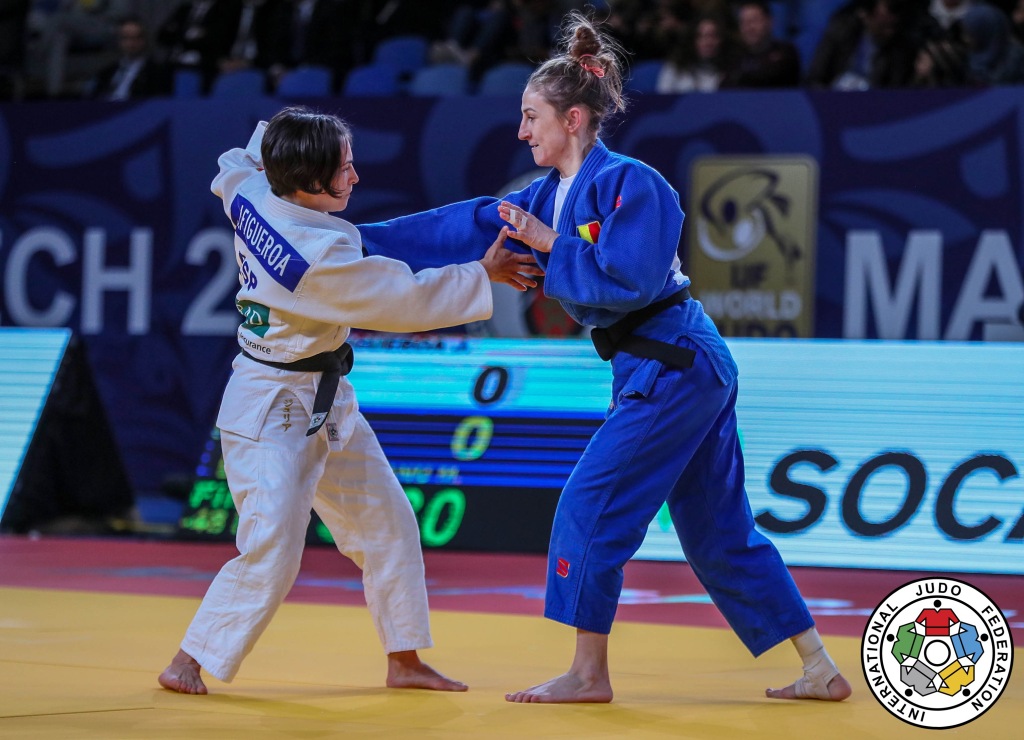
| Result | City | Date |
|---|---|---|
| 2 | Paris | 2024 |
| 1 | Abu Dhabi | 2024 |
| 1 | Zagreb | 2024 |
| 3 | Belgrade | 2023 |
| 2 | Montpellier | 2023 |

